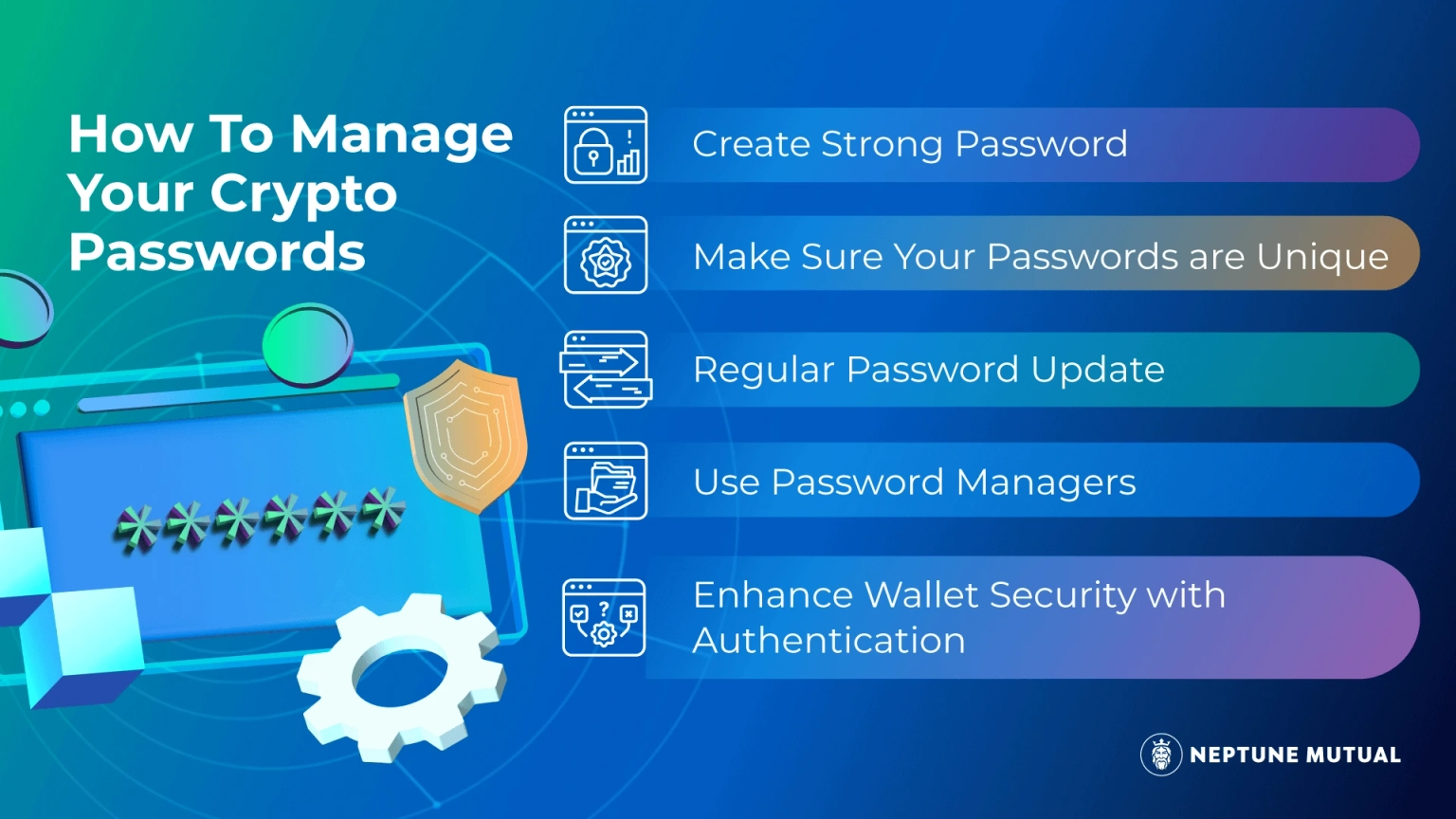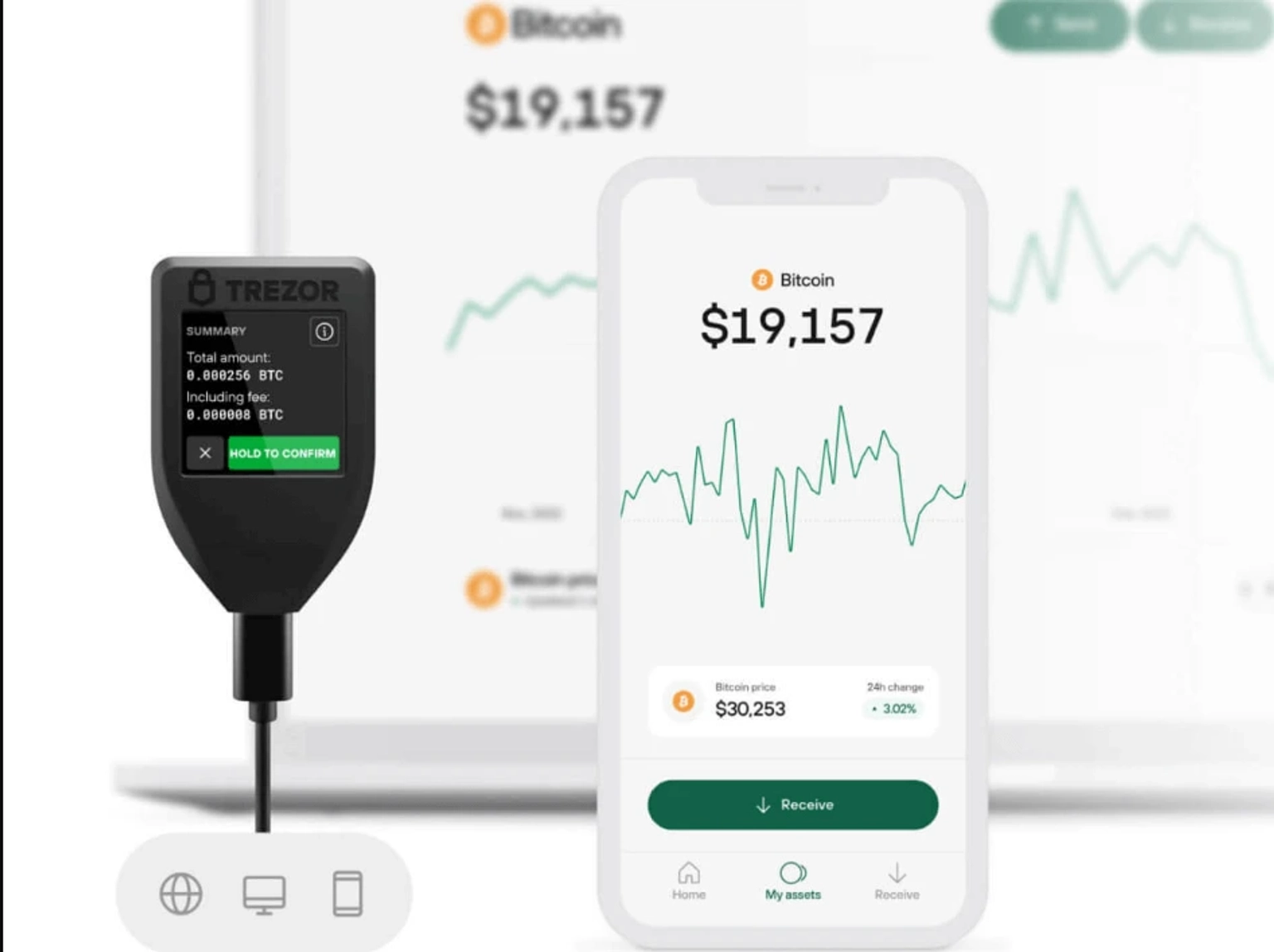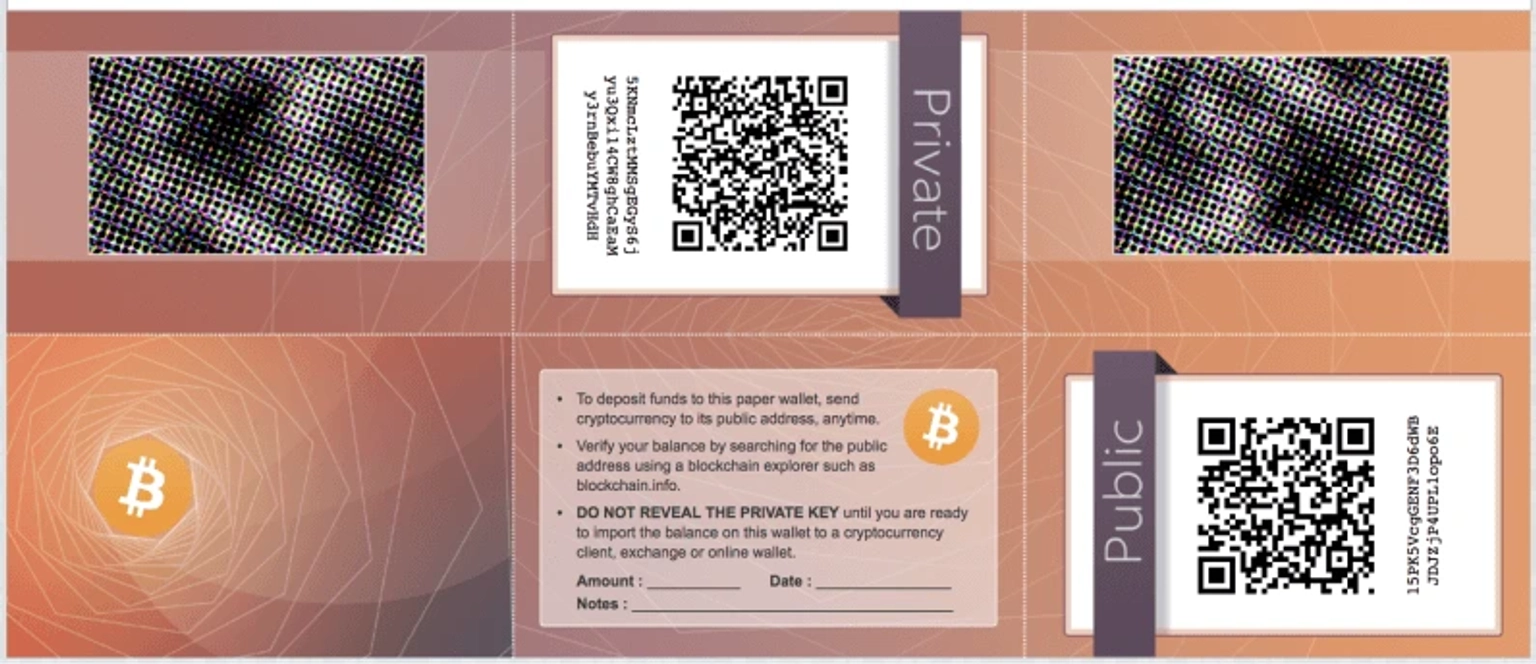
Honest vs Dishonest Incident Reporters
Explore honest and dishonest incident reporting in the Neptune Mutual ecosystem.
Youtube Video
Playing the video that you've selected below in an iframe

An informative article on ways to secure your crypto accounts with password management
Did you know that $3.8 billion worth of cryptocurrencies were stolen from users' accounts in 2022?
Blockchain is inherently secure due to its features such as immutability, cryptography, decentralization, and consensus mechanisms. However, exchange platform weaknesses, wallet security issues, smart contract vulnerabilities, and human errors bring cryptocurrencies these threats.
A password stands as a primary defense between crypto funds and hackers. So, crypto users have to be aware of the importance of effective password management to secure their crypto wallets and funds.
In this post, we’ll dive into several ways you can manage your crypto passwords and private keys.
DeFi wallets, which are non-custodial, provide users with total ownership of their wallets and funds. However, they don't have central intermediaries and individuals are largely responsible for securing the accounts and the funds in them. If you lose your password, the only way to recover your account is through seed phrases.
On the other side, centralized wallets from exchanges like Coinbase and Binance have intermediaries, which could bring a level of ease to managing and recovering passwords. But, they often have issues like account control, private key custody, anonymity, and so on.
Hackers continuously develop sophisticated methods to exploit weak passwords and gain unauthorized access to accounts. Therefore, maintaining strong, unique passwords is essential for safeguarding wallets, accounts, and funds against such threats.
Your DeFi wallets have private keys and seed phrases for account security and recovery. But passwords are the first security barrier to prevent malicious actors from accessing their wallets. So, password management is the precaution that ensures your crypto accounts’ safety.
As a beginner, you might want to know the differences between passwords, private keys, and seed phrases and what purposes they serve.
Passwords are the combination of characters used to verify the identity of a user during the process of authentication for online accounts, such as exchanges or wallet interfaces. Passwords protect your account from unauthorized access in the first place.
A private key is a sophisticated form of cryptography that enables a user to access their cryptocurrency and authorize transactions. It proves that you are the owner of the wallet, so whoever gains access to your private keys controls your account.
A seed phrase, also known as a recovery phrase, is a series of random words generated by your cryptocurrency wallet and used for wallet recovery and backup. In case your device is lost, stolen, or damaged, you can use the seed phrase to regain access to your funds on a new device.
Here are some of the best ways to manage your passwords to keep your crypto accounts and funds safe.

The widespread use of English globally suggests that attackers might brute-force your accounts using various combinations of the language. The idea of a mix of uppercase & lowercase letters, numbers, and special characters for passwords is not reliable anymore. We suggest you keep away from guessable passwords like a series of numbers or personal information.
Instead, consider creating your password using phrases in a different language. If you speak languages other than English, think of words, song titles, and phrases in your native language. Combining two such phrases or titles make the passwords more secure.
For example, a password like “non je ne regrette rien and a minha menina” would take billions of years to crack with brute force attacks.
When it comes to password length, there's no hard rule. It’s generally acknowledged that longer passwords equate to stronger security. Some platforms have password length restrictions to prevent users from entering very long passwords which could be unmanageable. But make sure your passwords are long enough to make them harder to crack with brute-force attacks.
There are lots of online tools like Password Monster that check the strength of passwords. Such tools are useful for getting an idea about how long your passwords should be. However, we don’t recommend revealing your passwords anywhere as they can pose threats to your accounts.
Personal information could be guessed easily, so don’t use your birthdays, names, or common words. Usually when you are a target of an attack, attackers will plan in advance and get information on you that is available publicly, such as where you grew up, your family tree, or your phone number. When attempting to select security questions across multiple platforms, avoid selecting the easiest ones. Make your answers random so that no one can easily guess those details.
And never use the same password across different accounts. If one account is compromised, others could follow. Each password should be distinct, not a slight variation of another.
You should regularly update your wallet passwords, especially if you frequently engage in transactions. If there's a security alert or a new vulnerability is reported in wallet software, promptly change your password.
Store your complex wallet passwords with a reputable password manager. This keeps them secure and accessible only to you. Use the password manager’s ability to generate and store complex passwords, reducing the risk of human error in creating weak passwords.
You can find credible password managers like Bitwarden, 1Password, and much more. Go through them, test them out, and choose the one you like. Make sure to always verify the legitimacy and accountability of password managers before using them.
Sometimes your account, credentials, and account data get compromised without your knowledge. Use online platforms to search across multiple data breaches to see if your email address, phone number, or other personal information were a part of any such leakage.
You can use tools like Have I Been Pwned to verify if your accounts have been compromised.
Enabling 2FA (Two-Factor Authentication) adds an additional security layer by sending authentication codes to your device. Similarly, for wallets that offer MFA (Multi-Factor Authentication), combine your password with physical tokens and biometric data. This multi-layered approach significantly reduces the risk of unauthorized access.
A hardware token generator, a device that generates authentication code offline, could be more effective than network device-based authentication. A device is susceptible to several threats like SIM swap or other forms of network based attacks. YubiKey and Google’s Titan Security Key are some of the hardware token generators that you can check out.
Remember the recent exploit on CoinEx? Hackers stole over a staggering $59 million of users’ funds from the platform due to compromised private keys.
To all CoinEx users & friends: We deeply regret the recent hack and extend our sincerest apologies to those affected. Your concern and attention have not gone unnoticed.
— Haipo Yang (@yhaiyang) September 14, 2023
This is an example of one of the many incidents that occurred due to private key compromise. Exchanges like Poloneix and HTX, as well as HECO bridge have suffered losses of over $123 million and $99 million respectively due to the same reason.
As you might have understood, private keys and seed phrases are sensitive information that you can’t lose. Lots of effective techniques and innovations have been implemented for securing private keys and seed phrases. Here are some of them:
Memorizing is the good old way to ensure your private key or seed phrase are not exposed to anyone. It ensures that they are not stored digitally or physically and you don’t leave any trace, thus preventing theft. However, you can’t solely rely on the memory, so having a reliable backup method for storing the keys and seed recovery phrase is essential.
Hot wallets like MetaMask, BitKeep, and Trust Wallet are connected to the internet, offering convenience to traders who transact frequently. However, it increases the risk of your keys being exposed to attackers. So, adopting precautions such as storing only small amounts of funds, MFA, regular security updates, and opting trusted wallet providers is vital.
Hardware wallets store private keys offline, making them immune to online hacking attempts. Most hardware wallets come with security features such as secure chip technology, PIN protection, physical verification, and so on.
Ledger and Trezor are the leading hardware wallet providers. Be sure to check them out.

Paper wallets involve generating private keys offline using secure software and writing them in a physical document. They can be stored in a safe location to save them from physical damage and from other people. Online applications like BitAddress can help you create paper wallets.

ou might want to go through our detailed article on securing private keys for DeFi wallets.
The security of your digital assets hinges on the strength and management of your passwords, private keys, and seed phrases. We've explored that employing a combination of robust passwords, secure storage, and advanced security measures is crucial for securing funds in your crypto accounts.
Neptune Mutual, as a company, is working with a similar objective of mitigating risks in the DeFi space and protecting funds from being lost. We are a parametric DeFi insurance protocol, providing cover for users’ valuable funds.
We have a marketplace on the Ethereum, Arbitrum, and BNB Smart Chain networks. Users looking to protect their funds can visit our marketplace, browse through the different cover products available, and purchase covers.
For developers who have their projects in DeFi, CeFi, and Metaverse, we can help you create cover pools for your products. Reach out to us on our contact page so we can discuss further.
To stay updated and learn more about what Neptune Mutual offers, follow us on X (Twitter) and join our community on Discord.